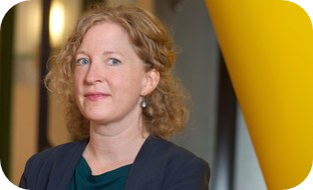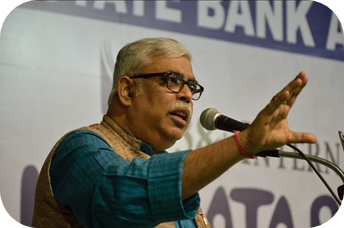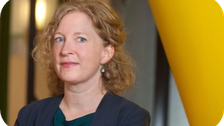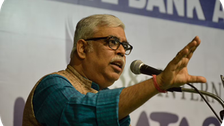Nov 07, 2022
21.11.2022: Panel discussion "Inequality and the Political Economy of Contemporary Crises"

© David Ausserhofer

© marjit

© Klaus Gigga
Time: Monday, 21 November 2022, 6:30-8:00 pm
Place: Online Zoom Link
Discussants:
Prof. Dr. Anna Holzscheiter (Chair of International Politics, TU Dresden)
Dist. Prof. Sugata Marjit (Indian Institute of Foreign Trade, Kolkata)
Sugata Marjit is one of the most prominent Indian economists and policy consultants. He is currently the First Distinguished Professor at Indian Institute of Foreign Trade and was the former Vice Chancellor of the University of Calcutta.
Anna Holzscheiter is Professor of Political Science with a focus on International Politics at TU Dresden. She also heads the research group 'Governance for Global Health' at the Social Science Research Center Berlin (WZB).
Host:
Prof. Dr. Alexander Kemnitz (Chair of Economic Policy and Economic Research, TU Dresden)
Abstract:
Within a few years, the COVID-19 pandemic and Russia's invasion of Ukraine have sent two major shockwaves through the global economy: prices for basic food items and energy have skyrocketed, supply chains are disrupted, leading to millions of people, particularly children, missing out on routine immunizations, and people's mobility continues to be curtailed . People around the world are facing unprecedented risks to their health, standard of living, and even their own lives. At the same time, the disastrous consequences of the pandemic and the ongoing war are ever more unequally distributed. While some reap massive profits from the new scarcities, others find themselves living at subsistence levels due to galloping prices.
The panel will focus on inequality in times of crisis and national and international policy responses to cushion the socioeconomic effects of contemporary crises. While some countries are stockpiling large medical reserves and even destroying unused vaccines, others are struggling to provide at least minimal medical care. The crises have exposed, and arguably exacerbated, inequalities within, as well as between, societies in new ways. Also policy responses vary widely, from clearly targeted and effectively implemented policies to purely populist agendas, from protectionist, nationalist policies to greater regional and international integration and the strengthening of international rules and institutions.
Download Flyer




